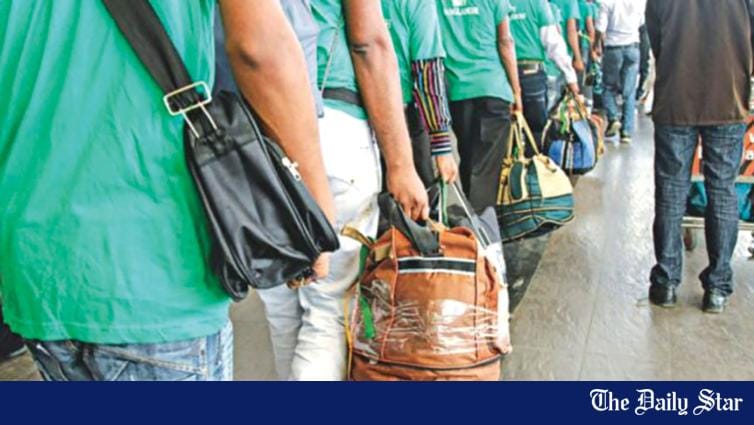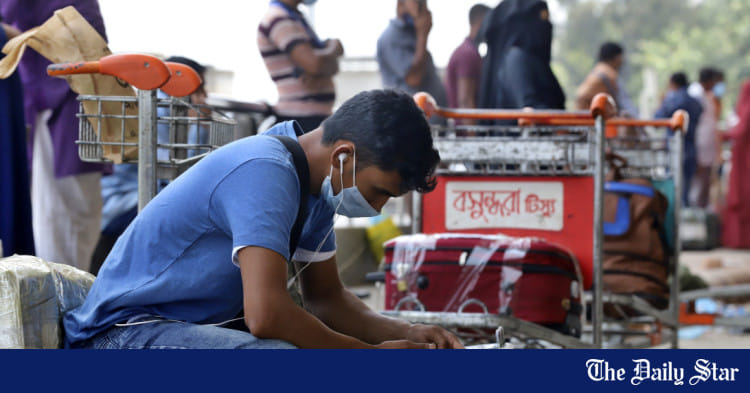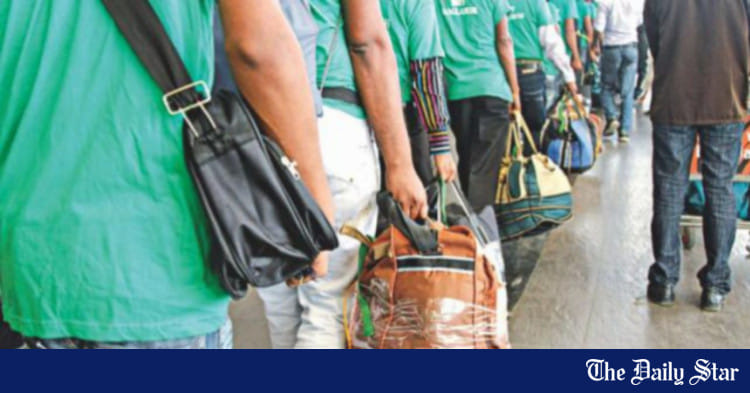Saif
Senior Member
- Joined
- Jan 24, 2024
- Messages
- 17,262
- Likes
- 8,334
- Nation

- Residence

- Axis Group


Bangladesh to get highest priority in sending workers to Malaysia
Malaysia is set to recruit up to 1.5 lakh foreign workers within months, with Bangladesh expected to receive the highest recruitment priority.
Bangladesh to get highest priority in sending workers to Malaysia
BSS Dhaka
Published: 15 May 2025, 19: 12

Asif Nazrul is with Malaysian human resource minister Steven Sim Chee Keong during his ongoing trip to the country. Courtesy
Expatriates' Welfare and Overseas Employment Adviser Dr Asif Nazrul has said Bangladesh will get the highest priority in sending workers to Malaysia soon.
"We have learned from different sources that Malaysia is going to recruit one lakh to 1.5 lakh foreign workers within the next couple of months. I have had talks with their Human Resources Minister (Steven Sim Chee Keong) and he assured us that Bangladesh will be given the highest priority in recruiting laborers. Maximum number of laborers will be recruited from Bangladesh, we have received this assurance," Dr Asif Nazrul, who is currently visiting Malaysia, said in a video post on his verified Facebook account.
The adviser, in the post, said he had official meetings with Malaysian Minister of Home Affairs and their Human Resources Minister. "I had informal discussions with their trade minister as well. There are some developments and that is what I am sharing with you all," he added.
Referring last year's visit of Malaysian Prime Minister Anwar Ibrahim to Bangladesh, Dr Asif Nazrul said the Malaysian premier is a personal friend of Chief Adviser Professor Muhammad Yunus and during that visit he had given assurance that he would give a chance to around 17,000 Bangladeshi workers, who failed to go to Malaysia by the 31 May, 2024 deadline.
"We have had many discussions based on this. They said that they would take those laborers on batch-wise and they have prepared a list of 7,926 workers in the first batch. They would give them opportunity to go and work there within a very short time and they (Malaysian administration) have already started the process," he added.
Dr Asif Nazrul also said he had requested the Malaysian Interior Minister to give Bangladeshi workers multiple entry visas.
"I had pointed out that though laborers from other countries get multiple entry visas in Malaysia, Bangladeshi laborers were not getting this. We talked for a while on this and he not only assured me, but also ordered his officials to take immediate action regarding this," the adviser said.
He further said he requested Malaysian officials to consider taking skilled workforce like security guards, caregivers and nurses from Bangladesh and they sounded positive in reply. He said the Malaysian officials have showed interest and the talks will continue in this regard.
"These all productive discussions were result of the personal friendship between our Chief Adviser Professor Muhammad Yunus and Malaysian Prime Minister Anwar Ibrahim. We could do these thanks to his (Professor Muhammad Yunus) guidance, his personal directions. Special Envoy on International Affairs to the Chief Adviser Lutfey Siddiqi also took part in the discussions and contributed a lot," he said.
BSS Dhaka
Published: 15 May 2025, 19: 12
Asif Nazrul is with Malaysian human resource minister Steven Sim Chee Keong during his ongoing trip to the country. Courtesy
Expatriates' Welfare and Overseas Employment Adviser Dr Asif Nazrul has said Bangladesh will get the highest priority in sending workers to Malaysia soon.
"We have learned from different sources that Malaysia is going to recruit one lakh to 1.5 lakh foreign workers within the next couple of months. I have had talks with their Human Resources Minister (Steven Sim Chee Keong) and he assured us that Bangladesh will be given the highest priority in recruiting laborers. Maximum number of laborers will be recruited from Bangladesh, we have received this assurance," Dr Asif Nazrul, who is currently visiting Malaysia, said in a video post on his verified Facebook account.
The adviser, in the post, said he had official meetings with Malaysian Minister of Home Affairs and their Human Resources Minister. "I had informal discussions with their trade minister as well. There are some developments and that is what I am sharing with you all," he added.
Referring last year's visit of Malaysian Prime Minister Anwar Ibrahim to Bangladesh, Dr Asif Nazrul said the Malaysian premier is a personal friend of Chief Adviser Professor Muhammad Yunus and during that visit he had given assurance that he would give a chance to around 17,000 Bangladeshi workers, who failed to go to Malaysia by the 31 May, 2024 deadline.
"We have had many discussions based on this. They said that they would take those laborers on batch-wise and they have prepared a list of 7,926 workers in the first batch. They would give them opportunity to go and work there within a very short time and they (Malaysian administration) have already started the process," he added.
Dr Asif Nazrul also said he had requested the Malaysian Interior Minister to give Bangladeshi workers multiple entry visas.
"I had pointed out that though laborers from other countries get multiple entry visas in Malaysia, Bangladeshi laborers were not getting this. We talked for a while on this and he not only assured me, but also ordered his officials to take immediate action regarding this," the adviser said.
He further said he requested Malaysian officials to consider taking skilled workforce like security guards, caregivers and nurses from Bangladesh and they sounded positive in reply. He said the Malaysian officials have showed interest and the talks will continue in this regard.
"These all productive discussions were result of the personal friendship between our Chief Adviser Professor Muhammad Yunus and Malaysian Prime Minister Anwar Ibrahim. We could do these thanks to his (Professor Muhammad Yunus) guidance, his personal directions. Special Envoy on International Affairs to the Chief Adviser Lutfey Siddiqi also took part in the discussions and contributed a lot," he said.









































